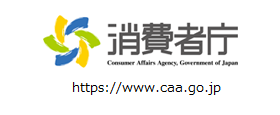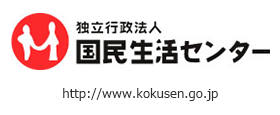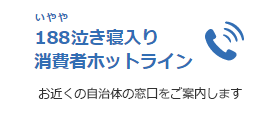Door-to-Door Sales
Door-to-Door Sales are transactions such as the sale of goods or rights or the provision of services for which a business operator visits a consumer's domicile, unscrupulous sales on the street, or appointment sales.
Door-to-Door Sales subject to the Specified Commercial Transactions Act
1.(1) Sales Form (Article 2 of the Act)
The term "Door-to-Door Sales" refers to the sale of goods or rights or the provision of services for which the seller or the service provider (*) concludes a contract at a place other than a business office (e.g., a consumer's domicile).
- TIPS
- The most common Door-to-Door Sales is a sales method in which a salesperson visits a consumer's residence to conclude a contract, etc. In addition, sales in a cafe, on the street, or exhibition sales for which a hotel or a community center is temporarily rented also fall under Door-to-Door Sales if the place is not deemed to be a store or other similar facility, judged in terms of the period of the sale and the type of the facility.
It also means the sale of goods or rights, or the provision of services, conducted at a regular store to customers solicited by certain methods.
- TIPS
- In some cases, even a contract concluded in a defined place of business, e.g., an office, can be considered to be "Door-to-Door Sales". For example, the following cases are considered to be "Door-to-Door Sales": a seller or a service provider stops a consumer on the street or at a place other than a business office and takes him/her to a business office to conclude a contract (so-called unscrupulous sales on the street); or a seller or a service provider calls away a consumer without a clear indication of sales purpose by telephone, postal mail, or other means of communication, or a seller or a service provider calls a consumer to a business office by dangling far more advantageous contract conditions than those for other persons saying "you are specially chosen," or by similar means, to solicit the conclusion of a contract (so-called appointment sales).
※*"A seller or a service provider" refers to a person engaging in the sale of goods or the provision of services as a business. "Engaging as a business" means that transactions are performed repeatedly and continuously with the intention of making a profit.It should be noted that the existence of such intention will be objectively judged regardless of the person's intention.
2.Designated Rights
The term "Designated Rights" means, among the rights to use facilities or to receive services, those which are sold in transactions related to the daily lives of citizens, and which are specified by Cabinet Order.
3. Exclusion from Application (Article 26 of the Act)
The Specified Commercial Transactions Act does not apply to the following cases, etc.
- Transactions between business operators
- Contract with a person living overseas
- Sales or provision of services by the national or local governments
- Sales or provision of services by a partnership established based on a special law, an employee organization of government employees, or a labor union, to their respective members
- Sales or provision of services by a business operator to its employees
- Sales of newspapers issued by entities other than publicly listed companies
- Those for which it is found that consumer interests can be protected by other laws and regulations
Control on Door-to-Door Sales
1. Clear Indication of Name of Business Operator (Article 3 of the Act)
A business operator must tell a consumer the following matters prior to solicitation in Door-to-Door Sales.
- Name of business operator
- The fact that its purpose is to solicit conclusion of contract
- Type of goods (rights, services) that are going to be sold
2. Prohibition against Re-solicitation (Article 3-2 of the Act)
When a business operator conducts Door-to-Door Sales, he or she must endeavor to confirm, prior to solicitation, that a consumer is willing to be solicited.
When a consumer manifested the intention not to conclude a contract, the continuation of solicitation during the same visit and re-solicitation after the visit are prohibited.
3.Delivery of Documents (Article 4 and 5 of the Act)
When a business operator received an offer for a contract, or concluded a contract, he or she must deliver a document containing the following matters to the consumer.
- Type of goods (rights, services)
- Selling price (consideration for the services)
- Timing and means of paying the charges (consideration)
- Time at which the goods will be delivered (time at which the rights will be transferred, or time at which the services will be provided)
- Information about withdrawal of the offer for the contract (cancellation of the contract)
- Name, address, and telephone number of the business operator, and the name of the representative in the case of a juridical person
- Name of the person in charge of the offer or conclusion of the contract
- Date of the offer for or conclusion of the contract
- Name, brand name, or manufacturer's name of the goods
- Model type of the goods
- Quantity of the goods
- If there are provisions about the responsibility of sellers for the case where the goods have latent defects (defect which is not perceptible at first glance), the details of such provisions
- If there are provisions about the cancellation of a contract, the details of such provisions
- If there are other special provisions, the details of such provisions
- TIPS
- In addition, a note for consumers to the effect that documents should be carefully read must be written in red and circled with red. The information about cooling-off must also be written in red and circled with red. Moreover, the font size on documents needs to be 8 points or more (the font size in the official gazette).
4.Prohibited Conduct (Article 6 of the Act)
The Specified Commercial Transactions Act prohibits the following unjust acts in Door-to-Door Sales.
- Misrepresentation in soliciting the conclusion of sales contracts, or to prevent the withdrawal of an offer for the contract (cancellation of the contract)
- Intentional failure to disclose factual information in soliciting the conclusion of sales contracts, or to prevent the withdrawal of an offer for the contract (cancellation of the contract)
- Intimidation to overwhelm a counterparty in order to conclude a sales contract, or to prevent the withdrawal of an offer for the contract (cancellation of the contract)
- Soliciting consumer,who was induced away by solicitation methods that do not inform the solicitation purpose (samethe same methods as so-called unscrupulous sales on the street, or appointment sales), to conclude a sales contract, etc., at a place other than places in which the general public comes and goes
5.Administrative Dispositions and Penalties
A business operator who violated the administrative controls as per the above is subject to penalties in addition to administrative disposition such as an instruction of business improvement (Article 7 of the Act), or a business suspension order (Article 8 of the Act).
6.Withdrawal of an Offer for or Cancellation of a Contract (Cooling-off System) (Article 9 of the Act)
Even if a consumer made an offer for a contract, or concluded a contract in Door-to-Door Sales, the consumer may withdraw the offer or cancel the contract (cooling-off) by writing to the business operator within 8 days after receiving the documents specified in laws.
It should be noted that a consumer may execute cooling-off even after the above period has passed for a contract concluded on or after November 11, 2004 if the consumer misunderstood cooling-off, or was overwhelmed so as not to execute cooling-off because of the business operator's misrepresentation about cooling-off matters or the use of intimidation. (The use of certified mail, registered mail, content-certified mail, etc., is recommended for cooling-off in order to avoid future problems.)
- TIPS
-
If the consumer has already received goods or rights at the time of cooling-off, the goods or the rights may be returned to the seller at the seller's expense. Moreover, even if the goods are used, or the services were already provided, consumers do not need to pay the consideration for them.Consumers do not need to pay compensation for damages or penalties either, and if the consumer has already paid a consideration such as a deposit, the paid amount will be immediately returned, or if the state of the land, building, or any other structure has already been changed, they can be returned to its original state at no charge.
However, please note that cooling-off provisions do not apply to the cases where the goods for which the value is almost lost by usage, so-called consumables (e.g., health foods, cosmetics, etc.),have been used, or to the cases where the transaction is made by cash and the total amount of charges or consideration is less than 3000 yen.
7.Withdrawal of an Offer for or Cancellation of Excessive Sales Contract (Article 9-2 of the Act)
If a consumer concluded a contract to purchase goods (services, designated rights) in Door-to-Door Sales in a quantity which considerably exceeds what is normally required, he or she may withdraw the offer, or cancel the contract within 1 year after the conclusion of the contract. (Cases where the consumer has a special reason to conclude the contract is excluded.)
In this case, the settlement rules that are in principle similar to the settlement rules for cooling-off apply.
8. Rescission of the Manifested Intention to Offer a Contract or to Accept Such Offer (Article 9-3 of the Act)
If a consumer manifested the intention to offer a contract or to accept such offer under the misunderstanding in each of the following cases as a result of the following acts of the business operator in soliciting the conclusion of the contract, the consumer may rescind the manifested intention for contracts concluded on or after November 11, 2004.
- In the case of misrepresentation, the misunderstanding that the information being represented was true
- In the case of intentional failure to disclose factual information, the misunderstanding that the relevant facts did not exist
9.Limitation to the Amount of Damages for the Cancellation of a Contract (Article 10 of the Act)
The Specified Commercial Transactions Act specifies that a business operator cannot claim an amount exceeding the following amounts so that the business operator won't be able to claim unreasonable damages when the contract is canceled for the reason of a consumer's default, e.g., delay of payment, after the cooling-off period has passed.
- When the goods (rights) are returned, the amount of the ordinary usage fees (if the amount obtained by subtracting the possible reselling price from the selling price exceeds the ordinary usage fees, such amount)
- When the goods (rights) are not returned, an amount equivalent to the selling price
- When the services are already provided, an amount equivalent to the consideration for the provided services
- When the goods (rights) are not delivered yet (or when the services are provided yet), the amount of the cost normally required for concluding and performing the contract.
The delinquency charges based on the statutory interest rate of 6% per year is added to these amounts.
10.Demand for Injunction against Business Operator's Conduct (Article 58-18 of the Act)
If a business operator has performed, or is likely to perform any of the following acts to many and unspecified persons, a Qualified Consumer Organization may demand that the business operator discontinue or prevent the relevant conduct, or take any other necessary measures.
- Misrepresentation in soliciting the conclusion of a contract
- Intentional failure to disclose factual information in soliciting the conclusion of a contract
- Intimidation to overwhelm a person to conclude a contract, or to prevent its cancellation
- Act of concluding a contract that includes special provisions which are disadvantageous to consumers, or special provisions against the limitation of the amount of damages for the cancellation of a contract
11."Door-to-Door Sales Consumer Relief Fund" by Japan Direct Selling Association (Article 29-2 of the Act)
If an offer is withdrawn or a contract is cancelled related to Door-to-Door Sales conducted by a member of the Japan Direct Selling Association pursuant to the provisions of the Specified Commercial Transactions Act, and if the member fails to refund the money it received from a consumer upon his or her request without justifiable grounds, the Japan Direct Selling Association is now able to provide a certain amount of money from the fund accumulated by its members as a "Consumer Relief Fund."



